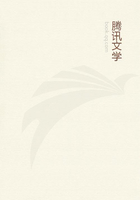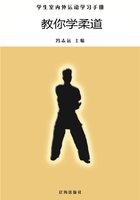The failures in literature are no less mystifying than the successes, though they are upon the whole not so mortifying. Ihave seen a good many of these failures, and I know of one case so signal that I must speak of it, even to the discredit of the public. It is the case of a novelist whose work seems to me of the best that we have done in that sort, whose books represent our life with singular force and singular insight, and whose equipment for his art, through study, travel, and the world, is of the rarest. He has a strong, robust, manly style; his stories are well knit, and his characters are of the flesh and blood complexion which we know in our daily experience; and yet he has failed to achieve one of the first places in our literature; if Inamed his name here, I am afraid that it would be quite unknown to the greatest part of my readers. I have never been able to account for his want of success, except through the fact that his stories did not please women, though why they did not, I cannot guess. They did not like them for the same reason that they did not like Dr. Fell; and that reason was quite enough for them. It must be enough for him, I am afraid; but I believe that if this author had been writing in a country where men decided the fate of books, the fate of his books would have been different.
The man of letters must make up his mind that in the United States the fate of a book is in the hands of the women. It is the women with us who have the most leisure, and they read the most books. They are far better educated, for the most part, than our men, and their tastes, if not their minds, are more cultivated. Our men read the newspapers, but our women read the books; the more refined among them read the magazines. If they do not always know what is good, they do know what pleases them, and it is useless to quarrel with their decisions, for there is no appeal from them. To go from them to the men would be going from a higher to a lower court, which would be honestly surprised and bewildered, if the thing were possible. As I say, the author of light literature, and often the author of solid literature, must resign himself to obscurity unless the ladies choose to recognize him. Yet it would be impossible to forecast their favor for this kind or that. Who could prophesy it for another, who guess it for himself? We must strive blindly for it, and hope somehow that our best will also be our prettiest; but we must remember at the same time that it is not the ladies' man who is the favorite of the ladies.
There are of course a few, a very few, of our greatest authors, who have striven forward to the first place in our Valhalla without the help of the largest reading-class among us; but Ishould say that these were chiefly the humorists, for whom women are said nowhere to have any warm liking, and who have generally with us come up through the newspapers, and have never lost the favor of the newspaper readers. They have become literary men, as it were, without the newspapers' readers knowing it; but those who have approached literature from another direction, have won fame in it chiefly by grace of the women, who first read them, and then made their husbands and fathers read them. Perhaps, then, and as a matter of business, it would be well for a serious author, when he finds that he is not pleasing the women, and probably never will please them, to turn humorous author, and aim at the countenance of the men. Except as a humorist he certainly never will get it, for your American, when he is not making money, or trying to do it, is making a joke, or trying to do it.















